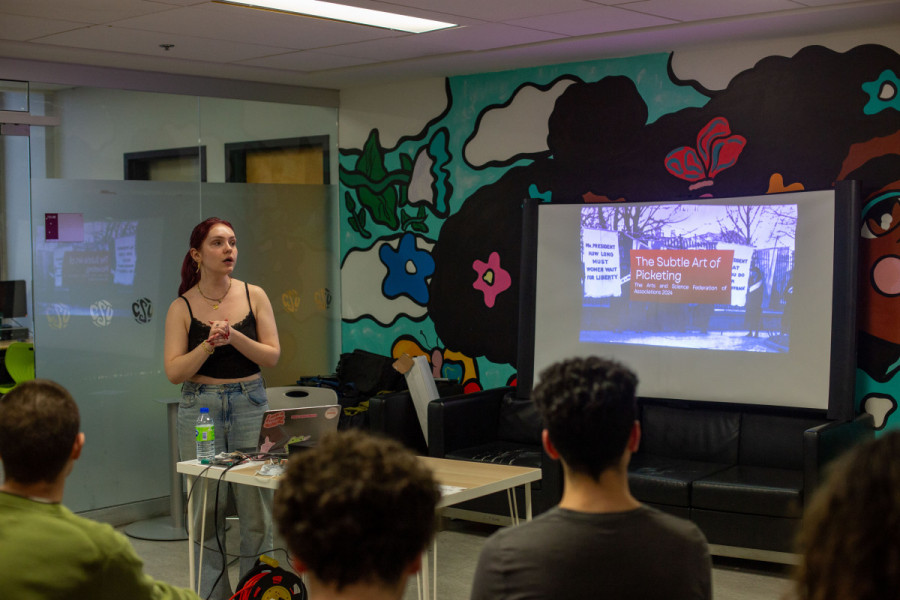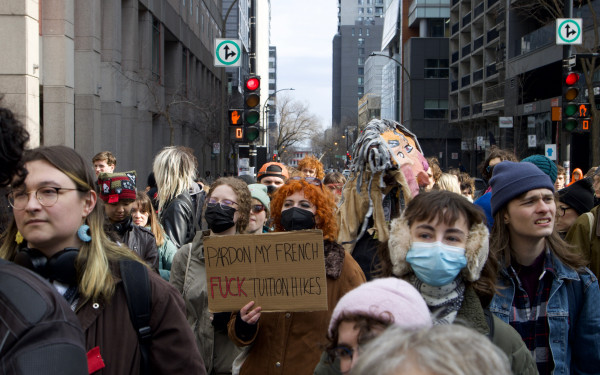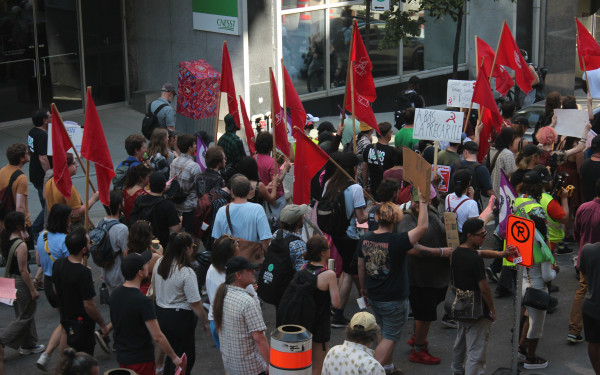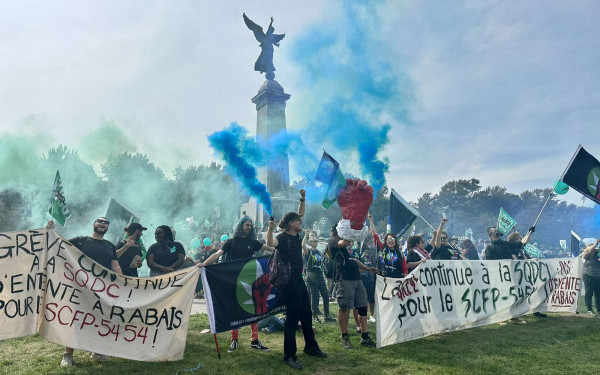ASFA holds picketing workshop for second strike
The event anticipates the upcoming five-day tuition hike student strikes
On March 6, around a dozen students attended the first of two workshops on picketing organized by the Arts and Science Federation of Association (ASFA) in the Hall building.
The event, which aimed to provide information to students on how to picket, was held in light of the upcoming five-day strike to protest tuition hikes for out-of-province and international students in anglophone universities. So far, over 20,000 students are going on strike between March 11 to March 15.
Angelica Antonakopolous, academic coordinator at ASFA, facilitated the workshop and first detailed the history of strikes in Quebec and spoke about their effectiveness.
She noted that in Quebec, student unions have the same rights as labour unions under the Accreditation Act. “The government subsidizes post-secondary education. So, if we have a mounting strike effort [through a multi-day strike], we're threatening the cancellation of the semester. And if that happens, you have to refinance an entire semester’s worth of education for about 40,000 students, which can be really costly for the government,” she said.
Elaborating on the differences between types of picketing, Antonakopoulos explained that soft picketing does not involve blocking classroom doors, while hard picketing does. However, ultimately, “both want to achieve the common goal to dissuade students from entering classrooms,” she explained during the workshop. Each student association votes independently on which they will enforce.
Considering student associations like the Engineering and Computer Science Association, and the Geography Undergraduate Student Society voted to hard picket classes during the strike, Antonakopoulos gave pointers on how to enforce a picket line. On top of holding banners to block classroom entrances and rallying up students, she explained that being early to class, as well as engaging professors, could strengthen solidarity within the movement.
Emmanuel Szeptycki, a music major at Concordia, attended the workshop as it was their first time picketing. “I feel like it would be important to get a sense of protocol since it’s something I have no experience in,” she said.
“I’m generally a conflict-averse person who freezes up in arguments or heated situations that probably will come up in the process of picketing, so having scripts and talking points and preparing for problems people might have, it felt important,” Szeptycki said.
Antonakopoulos also encouraged attendees to remain calm and polite on the picket lines, as well as never physically engage people or escalate a situation first.
“One of the most effective tactics to argue against the strike is the administration painting strikers as villains,” said Antonakopoulos. “There's kind of this stereotype about students that are on strike that we want to ditch class for the sake of having a week off and that we're likely going to be mean to students that want to go into class. Part of it is really about changing that narrative.”
During the last strike, held from Jan. 31 to Feb. 2, Antonakopoulos noted that some striking students had escalated interactions with dissenting students, which she discouraged during the workshop.
Antonakopoulos also explained that the picketing dispatch held on the seventh floor of the Hall building helped the organization of the strike. She noted that similar dispatch stations will also be erected in the EV and Hall buildings, as well as the Loyola campus.




_600_375_90_s_c1.JPG)

